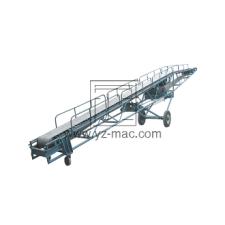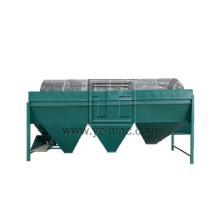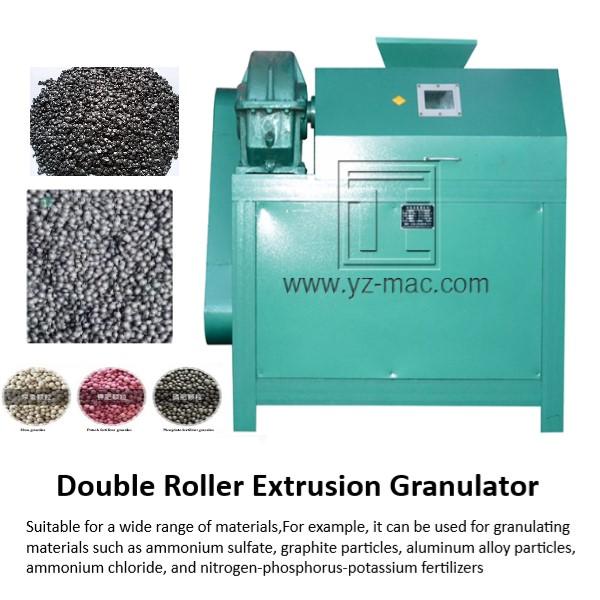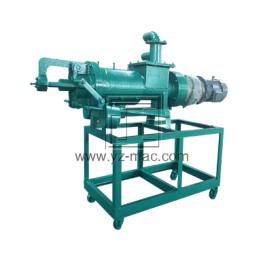Fertilizer mixer for sale
A fertilizer mixer, also known as a blending machine, is a specialized equipment designed to efficiently mix and blend various fertilizer components to create customized fertilizer formulations.
Benefits of a Fertilizer Mixer:
Customized Fertilizer Formulations: A fertilizer mixer enables the blending of different fertilizer components, such as nitrogen, phosphorus, potassium, and micronutrients, in precise ratios. This allows for the creation of customized fertilizer formulations tailored to specific crop and soil requirements, maximizing nutrient uptake and optimizing plant growth.
Homogeneous Mixing: A fertilizer mixer ensures thorough and homogeneous mixing of fertilizer components. It eliminates inconsistencies in nutrient distribution, ensuring every particle of the blended fertilizer contains the desired ratio of nutrients. Homogeneous mixing leads to consistent fertilizer application and improved crop yields.
Time and Labor Efficiency: Fertilizer mixers streamline the blending process, significantly reducing the time and labor required for manual mixing. With automated mixing capabilities, these machines can efficiently handle large volumes of fertilizer components, increasing production efficiency and reducing operational costs.
Enhanced Nutrient Availability: Proper blending in a fertilizer mixer promotes the uniform distribution of nutrients throughout the fertilizer mixture. This enhances nutrient availability to plants, reducing the risk of nutrient imbalances and ensuring balanced nutrition for optimal plant growth and productivity.
Key Considerations when Purchasing a Fertilizer Mixer:
Mixing Capacity: Assess your fertilizer production needs and select a mixer with an appropriate mixing capacity that can meet your desired output. Consider factors such as batch size, frequency, and production volume to ensure the mixer can handle your requirements efficiently.
Mixing Mechanism: Fertilizer mixers utilize various mixing mechanisms, including paddle mixers, ribbon mixers, and vertical screw mixers. Evaluate the mixing mechanism’s efficiency, versatility, and ability to handle different fertilizer components to choose a mixer suitable for your specific blending needs.
Material Construction and Durability: Look for a fertilizer mixer constructed from high-quality materials that can withstand the corrosive nature of fertilizer components. The machine should be durable, resistant to wear, and easy to clean and maintain.
Automation and Control: Consider the level of automation and control offered by the fertilizer mixer. Advanced features such as programmable recipes, variable speed control, and real-time monitoring can enhance operational efficiency, accuracy, and consistency in fertilizer blending.
Applications of Fertilizer Mixers:
Agricultural and Commercial Fertilizer Production: Fertilizer mixers are extensively used in agricultural and commercial fertilizer production facilities. They enable the precise blending of fertilizers to meet specific crop and soil requirements, ensuring optimal nutrient delivery and maximizing yields.
Fertilizer Blending and Distribution Centers: Fertilizer mixers are utilized in blending and distribution centers to create custom fertilizer blends for distribution to farmers and growers. These mixers ensure consistent formulations and enable the customization of fertilizers based on specific crop and soil needs.
Specialty Fertilizer Manufacturing: Fertilizer mixers play a crucial role in the production of specialty fertilizers tailored for specific crops or agricultural practices. They enable the precise blending of specialized additives, micronutrients, or slow-release components to meet unique agricultural requirements.
Research and Development: Fertilizer mixers are utilized in research and development settings to experiment with new fertilizer formulations, test different nutrient ratios, and study the effects of custom blends on crop performance. These mixers allow researchers to fine-tune fertilizer formulations for specific applications.
A fertilizer mixer offers benefits such as customized fertilizer formulations, homogeneous mixing, time and labor efficiency, and enhanced nutrient availability. When purchasing a fertilizer mixer, consider factors such as mixing capacity, mixing mechanism, material construction, durability, and automation features.







